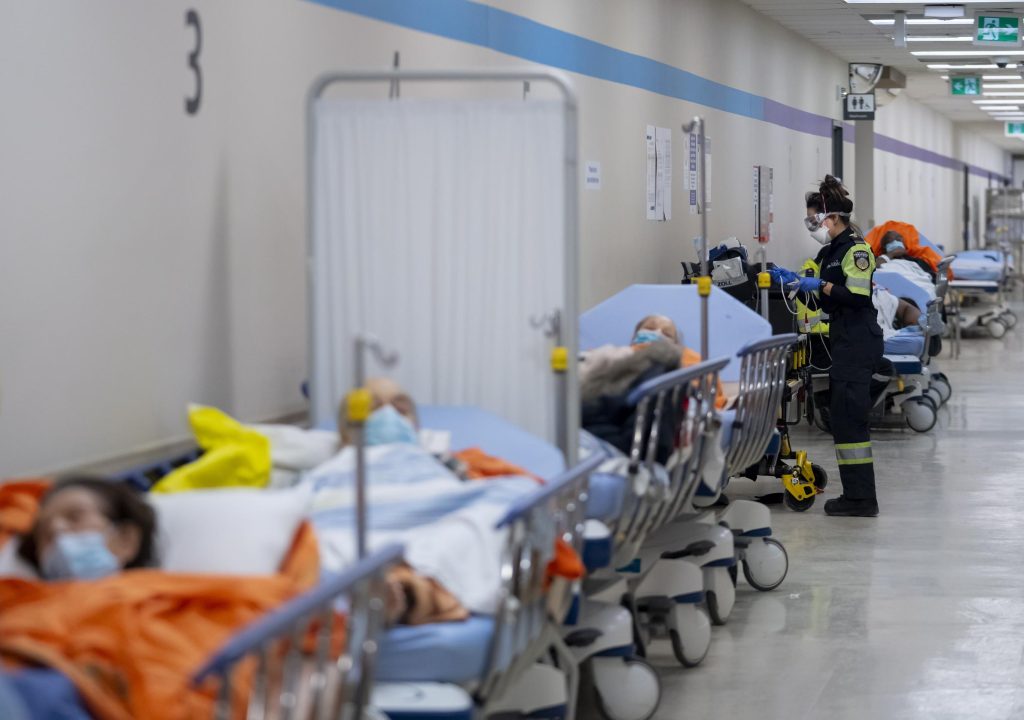Every year in Europe, more than 35,000 people die from infections with antibiotic-resistant bacteria, according to the ECDC European Health Institute report. Therefore antibiotic resistance has the same health consequences in Europe as influenza, tuberculosis and HIV/AIDS combined.
First, the good news: In the first two years of the Corona pandemic, the use of antibiotics in Europe – and also in our country – took a sharp decline. This is hopeful news because excessive consumption of antibiotics causes bacteria to become resistant to them. The infection threatens to become irreversible.
Funnily enough, we owe the decline in use to the pandemic: fewer antibiotics were needed back then. Common respiratory infections did not spread (people kept their distance and wore masks) and operations for which patients received antibiotics were canceled as a precaution. Andrea Ammon, Director of the European Health Institute ECDC (European Center for Disease Prevention and Control), said Thursday in introducing New figures on antibiotic use and resistance.
Silent pandemic
The good news is overshadowed by the growing number of antibiotics that should be used as little as possible: those with a broad spectrum of action and a high risk of resistance. In European hospitals, more and more patients are receiving such broad-spectrum antibiotics. Between 2012 and 2021, usage in the European/European Economic Area (EEA) increased by 15 percent. And the use of “backup antibiotics”—the last resort when nothing else works against a bacterial infection—has multiplied even further.
As a result, antibiotic resistance is on the rise. Some dangerous bacteria that are resistant to multiple antibiotics were more common in 2021 than in 2018-2019.
The spread of resistant bacteria takes its toll. Figures for 2021 are not yet available, but in 2020 more than 35,000 patients died in the EU/EEA – or roughly 100 patients per day – from untreatable bacterial infections, such as bloodstream infections or meningitis. Thus, antibiotic resistance, according to the ECDC’s calculation, has the same health consequences in Europe as influenza, tuberculosis and HIV/AIDS combined. Antibiotic resistance is not the next pandemic. They’re already using it,” said Dominique Monet, who leads the antibiotic resistance program at ECDC. Ammon, director of the center, added that it is a “quiet and slow” pandemic, not waves, as we know from Corona.
Old Belgian ulcer
It is also possible that the fact that some antibiotics are used more than before due to Corona is a result of the corona epidemic. Covid patients in the hospital have been widely given antibiotics to prevent them from getting a bacterial infection on top of covid. The antibiotics that patients usually receive when they are in intensive care have been on the rise since the beginning of the pandemic.
In Belgian hospitals, some antibiotics were also given more during the Corona years, but there is no strong upward trend in our country, as in Greece or Bulgaria, for example. Here, the resistance of bacteria does not reach such an alarming level as in southern and eastern Europe.
However, Belgium remains one of the poorest in the European class when it comes to antibiotic use, especially outside the hospital. Almost one in five Belgians (19%) They also believe that antibiotics may help prevent colds – which is not true, because colds are caused by viruses. And more than a quarter (27 per cent) of Belgians are unaware that antibiotics can cause diarrhoea.
“The above-average use of antibiotics in our country is ancient, but dangerous,” the Cabinet responds with Health Minister Frank Vandenbroek (Fauroit). Patients, as well as healthcare professionals, are still not sufficiently aware of what excessive consumption can mean for health in the long term.
On Thursday, the minister announced the start of a major awareness campaign aimed at opening a dialogue with citizens, doctors, pharmacists and veterinarians about the use of antibiotics.

“Creator. Award-winning problem solver. Music evangelist. Incurable introvert.”






More Stories
The US Senate also approved an aid package for Ukraine, which is “necessary to restore peace,” according to Zelensky
Cute dog bites woman's face and eats it: 'It ruined my life'
Pope Francis does not want to appear conspicuous after death